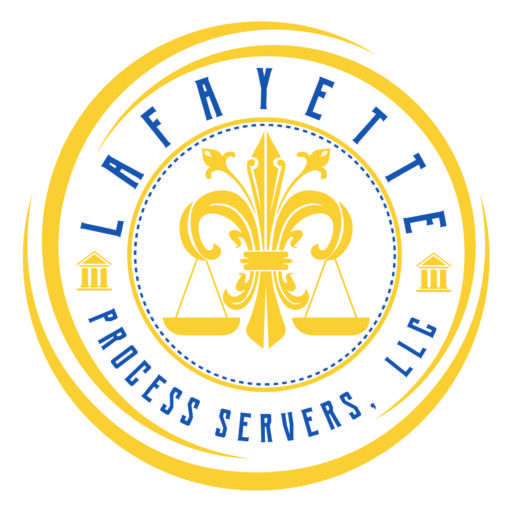Navigating the legal landscape can be complex. One area that often raises questions is the delivery of legal papers.
Process servers play a crucial role in this. They ensure legal documents reach the right hands and maintain the integrity of the legal process.
But what happens when the intended recipient isn’t home? Can a process server leave the paperwork with someone else?
This article aims to illuminate these questions. We’ll delve into the restrictions and responsibilities that process servers face.
We’ll also explore the “substituted service” concept and its legal implications.
This guide will provide valuable insights whether you’re a legal professional, a process server, or someone expecting legal documents.
Understanding the Role of a Process Server
A process server is a legal messenger. They deliver court documents to the parties involved in a lawsuit, ensuring everyone is aware of the legal proceedings.
Their role is crucial for maintaining the integrity of the legal system. They ensure that legal papers are served correctly and promptly. This allows the legal process to proceed fairly and transparently.
Legal Compliance and Process Serving
Process servers must adhere to specific laws and regulations. These rules dictate how and when they can deliver legal papers. Non-compliance can lead to severe consequences, including invalidating a court case.
It’s important to note that these laws vary by jurisdiction. Therefore, process servers must be knowledgeable about the specific rules in the areas in which they operate. This ensures they maintain legal compliance at all times.
Direct Service vs. Substituted Service
Direct service is the preferred method of delivering legal papers. This involves handing the documents directly to the person named on the papers. It ensures that the right person receives the documents, reducing the risk of legal disputes.
However, direct service is not always possible. In such cases, substituted service may be used. This involves leaving the documents with a responsible adult at the recipient’s home or workplace. It can also include mailing the documents to the recipient’s last known address.
Substituted service is subject to strict rules. For instance, it can only be used after several failed attempts at direct service. The process server must also document these attempts. This ensures that every effort has been made to serve the papers directly before resorting to substituted service.
Who Can Receive Legal Papers on Behalf of the Recipient?
When direct service is impossible, legal papers can be left with a responsible adult at the recipient’s home. This person is often a family member or roommate. They must be of sound mind and capable of understanding the importance of the documents.
In some cases, legal papers can also be left with a person in charge at the recipient’s workplace. However, this is generally seen as a last resort. The process server must still try to serve the papers directly to the recipient before resorting to this method.
State-Specific Restrictions and Requirements
Process serving laws can vary significantly from state to state. Some states have strict rules about who can serve papers. For example, in some states, only a sheriff or a court-appointed process server can serve legal documents.
Other states have specific rules about when and where papers can be served. For instance, some states prohibit serving papers on Sundays or holidays. Process servers must be familiar with the laws in their state to ensure legal compliance.
The Importance of Due Diligence in Process Serving
Due diligence plays a crucial role in serving the process. It refers to the process server’s responsibility to make reasonable attempts to serve the papers directly to the intended recipient. This often involves visiting the recipient’s home or place of work multiple times at different hours.
If direct service is not possible, the process server may substitute service. However, they must demonstrate that they made all reasonable efforts to serve the papers directly. This is where the concept of due diligence comes into play.
Documenting Attempts to Serve Papers
A process server must keep detailed records of their attempts to serve legal papers. This includes the date, time, and location of each effort, as well as the outcome. They should also note any interactions with the recipient or others at the location.
This documentation is crucial for demonstrating due diligence. If the recipient challenges the service in court, the process server can use these records as evidence. They show that the server reasonably tried to deliver the papers directly before substituting a service.
Consequences of Improper Service of Process
Improper service of process can have profound legal implications. If the court finds that the service was not carried out correctly, it may dismiss the case. This is because the right to be notified of legal proceedings is a fundamental aspect of due process.
In addition, the process server could face legal action if they violate service of process laws. This could include penalties or even criminal charges in some cases. Therefore, process servers must understand and follow the rules and restrictions that apply to their work.
Ethical Considerations for Process Servers
Process servers must adhere to a strict code of ethics in their work. This includes respecting the rights and privacy of the individuals they are serving. They must also maintain neutrality and avoid any actions seen as harassment or intimidation.
Furthermore, process servers are responsible for understanding the specifics of the documents they serve and ensuring they deliver the correct papers to the right person. This requires a high level of professionalism and adherence to legal standards.
Conclusion: Ensuring Legal Papers Are Served Correctly
In conclusion, the role of a process server is crucial in the legal system. They ensure that legal papers are served correctly, adhering to all legal requirements and restrictions. This includes understanding when and to whom they can leave the paperwork if the intended recipient is unavailable.
However, it’s important to remember that laws and regulations vary by state. Therefore, it’s always advisable to consult with a legal professional or a knowledgeable process server to understand the specific rules applicable to your situation. This will help ensure the service process is carried out correctly and legally.

